SUMMARY
This is AI generated summarization, which may have errors. For context, always refer to the full article.
The Commission on Elections (Comelec) said the P26.497-billion ($531.305-million) budget proposed by the executive branch to Congress for 2022 would allow the poll body to increase the honoraria of election workers by at least P2,000 ($40) “across the board.”
The raise, however, still falls short of the Department of Education’s proposal of a P3,000 ($60) increase in the pay of poll workers from the honoraria stated under the Election Service Reform Act, passed in April 2016.
“P2,000 iyong initial computation namin. Posible pang umakyat iyan pero kino-compute pa namin lahat-lahat ng aming ibabayad sa aming poll workers,” Comelec Chairman Sheriff Abas told lawmakers during the deliberations of the poll body’s 2022 budget before the House appropriations panel on Friday, September 10.
(Our initial computation was a P2,000 increase, which may still rise but we’re still computing the total amount that’s allotted for the payment of our poll workers.)
Abas also revealed that the executive branch rejected the poll body’s request to allot funds for the hazard pay of poll workers, who would serve on election day against the backdrop of the COVID-19 pandemic.

Comelec had sought a P41.992-billion ($841.997-million) budget for 2022, more than double the budget it received in the last presidential election year. The Duterte government, however, slashed the Comelec’s request by P15.495 billion ($310.691 million).
The poll body previously said that the Department of Budget and Management’s (DBM) “deep cut” in the Comelec’s budget would significantly impact the conduct of the 2022 elections.
“Even a cursory review of the National Expenditure Program, however, immediately reveals that the budget for the electoral boards will be one of the most affected,” Comelec spokesman James Jimenez had said, referring to teaching and non-teaching personnel.
During Friday’s House hearing, ACT Teachers Representative France Castro argued that the P2,000 increase in the honoraria of poll workers across the board was still not enough.
Her proposal instead was an increase of at least P4,000 ($80) from what was stated under the 2016 law, which tasked the Comelec and the Deped to review the pay every three years.
“Halos isang araw iyong election day sa bahagi ng guro. May trainings pa iyan, webinars. Pupunta pa sila sa school para ayusin ang rooms nila at machines,” the House Assistant Minority Leader said.
(Teachers spend an entire day during elections. They also attend trainings and webinars. They also go to the school ahead of election day to prepare the rooms and machines.)
“Tingin ko, masyadong maliit iyong P2000 na maidadagdag across the board sa honorarium ng ating volunteer election personnel,” Castro added. (I think the P2,000 increase in honorarium across the board for our volunteer election personnel is too low.)
Abas called on Congress to restore the Comelec’s P41.992-billion proposed budget to accommodate requests to further increase the honoraria of poll workers.
“Kung matutulungan po kami ng Kongreso na maibalik lahat ng hiningi namin sa DBM regarding the increased honorarium ng teachers, mas maganda po iyon. Pero ngayon, tali po kami sa kung ano ang ibinigay ng DBM,” Abas said.
(If Congress would help us restore the budget we proposed to DBM regarding the increased honorarium of teachers, that would be great. But right now, our hands are tied.)
Congress may still increase or decrease the Comelec’s budget for next year after budget deliberations.
In the 2019 polls, more than half a million teachers manned the elections, while over 36,000 schools were used as polling places.
The call for better compensation for poll workers comes as the Comelec eyes a 12-hour voting schedule, from 6 am to 6 pm, on election day, in an apparent bid to decongest polling places and minimize coronavirus risks. – Rappler.com
*$1 = P49.87
Add a comment
How does this make you feel?



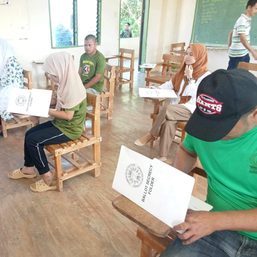

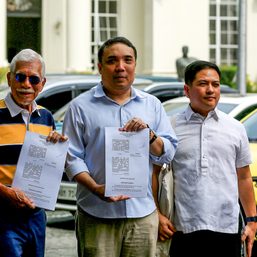
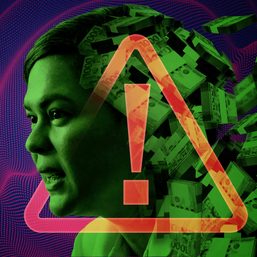
![[In This Economy] Brace yourselves for more deficits, debt](https://www.rappler.com/tachyon/2023/09/TL-Brace-yourselves-deficit-debt-September-29-2023.jpg?resize=257%2C257&crop=241px%2C0px%2C720px%2C720px)

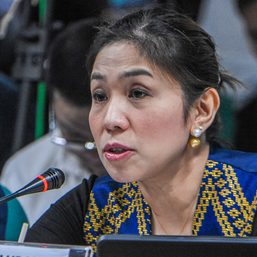
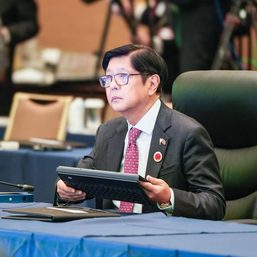

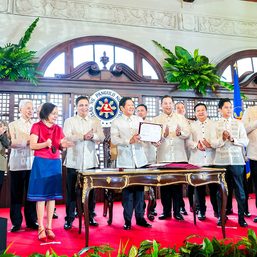
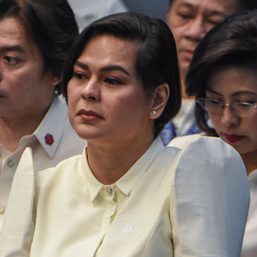

There are no comments yet. Add your comment to start the conversation.